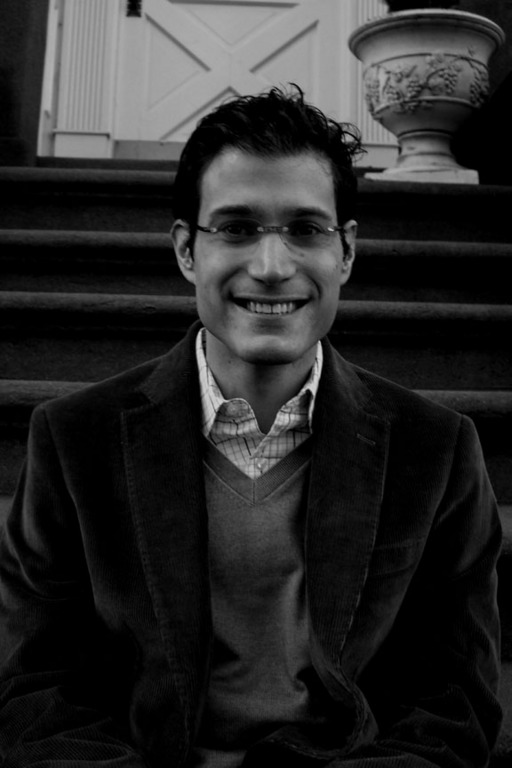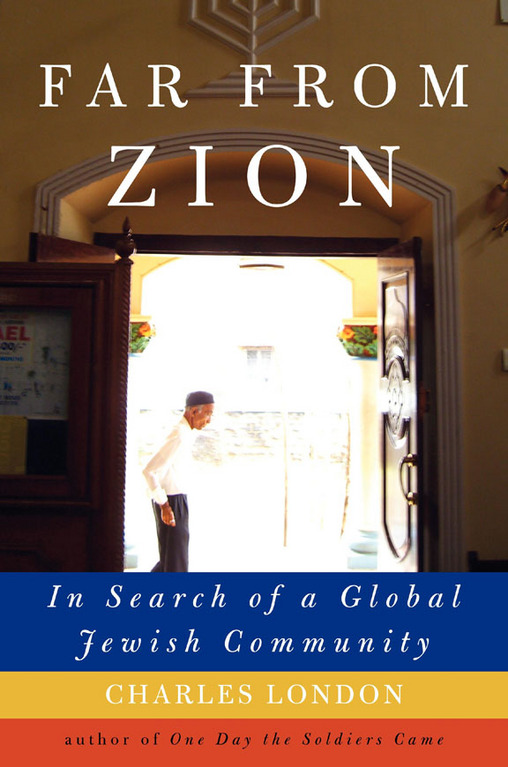Q and A with Charles London
Finding Zion
Issue of February 5, 2010/ 21 Shvat 5770
Charles London is the author of “Far from Zion: In Search of a Global Jewish Community” [Harper 2009]. Prior to beginning the book, London “had never strongly identified with my Judaism,” he said. During the course of his research for his first book, One Day the Soldiers Came, he stumbled upon the Jewish community in Sarajevo. “They had used their historical experience of disaster, displacement and vulnerability to help that city survive the siege,” he explained.
Inspired by the Sarajevo Jewish community and the discovery that his grandmother was raised in a Yiddish-speaking shtetl in Virginia, he set off in search of far-flung Jewish communities “around the world that might teach me something about how they got there, why they stayed, and what it meant to be part of this global people in an interconnected world.”
Michael Orbach: So, what did you find?
Charles London: Everywhere I went had something new to show me about a different way to create community and to create a Jewish and a national identity. The diversity showed me the strength and vitality of the Jewish people, even as it showed me the effort it took to have a meaningful Jewish life in the modern world, be it in the ‘Bible Belt’ in Arkansas or amidst the enforced piety in Iran. I also realized that for every place I went, there were 20 others I could have gone. I could spend the rest of my life looking for these communities and not exhaust the search, though that is changing. Over 80 percent of the world’s Jews live in Israel or America now. I do hope that other 20 percent can remain a source of creativity and strength for the rest of us.
MO: What was the
highlight of the trip?
CL: There were so many — enough to fill a book! But right now, two places come to mind. In Uganda, a group of black African subsistence farmers had been practicing Judaism on their own for about 100 years. They had barely survived the reign of Idi Amin, and were just starting to come to the attention of global Jewry. They were making formal conversions by the hundreds and doing some amazing interfaith peace work and economic development. They ran a primary school and a high school serving youngsters of all faiths. It was an amazing thing to walk along a dusty hill in eastern Uganda on Friday evening and have a group of African school children of all faiths yell out “Shabbat Shalom!” as I passed the Hadassah Primary School. I never thought I would stumble upon a Jewish school in an African village.
And in Bentonville, Arkansas, right in the heart of the Bible Belt, the first new Jewish community in the south in over 50 years is springing up. Like the Jews in Uganda, it’s a DIY [do it yourself] kind of community. They are building their faith institutions and practices for themselves, without a professional class of educators and clergy like I’d had growing up on the east coast. In both cases, these communities reminded me that, even as some Jewish communities fade around the world — as they have for centuries — others are springing up. We’re a persistent people.
MO: Was there any unifying factor between the disparate Jewish communities?
CL: They all insisted I eat more! Seriously, though, the communities had diverse histories and languages. They were every color under the sun. They had their own politics and communal challenges. They did share the universal challenge of engaging young people and figuring out how to adapt their institutions to the next generations, to create something lasting. But really, the main unifying factor was Torah. They understood and interpreted differently, and some of the communities were deeply secular, but this narrative of the people, whether they viewed as a sacred or a normative text, or something in between, had a role to play. The other unifying factor was simply a desire to be connected to each other, to be part of the same ecosystem as the other Jewish
communities. I saw that we are not one people, but rather, more like a rainforest: rich in diversity, stronger for our diversity, and deeply tied to one another. We may struggle amongst ourselves over everything from women’s prayer to the politics of Israel, but we are all creating the same project: a living expression of Jewish values on earth, even if we understand those values differently sometimes, and a meaningful and safe Jewish life for everyone who seeks it.

 41.0°,
Fair
41.0°,
Fair 







